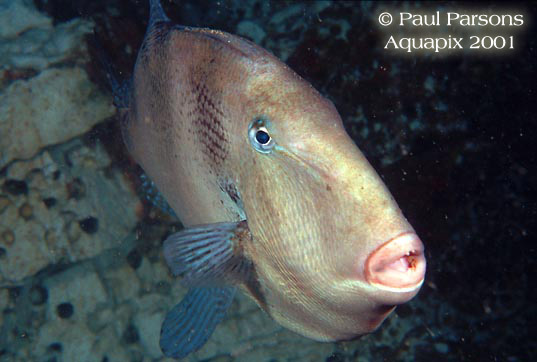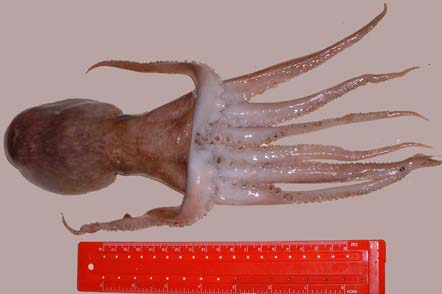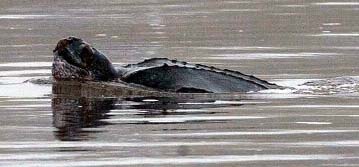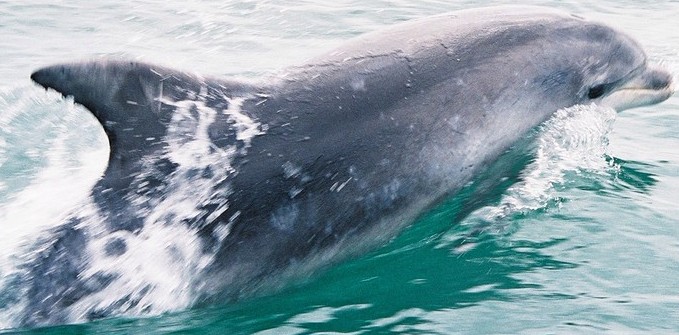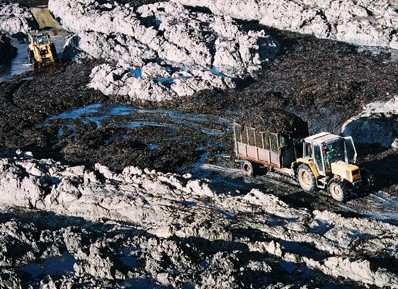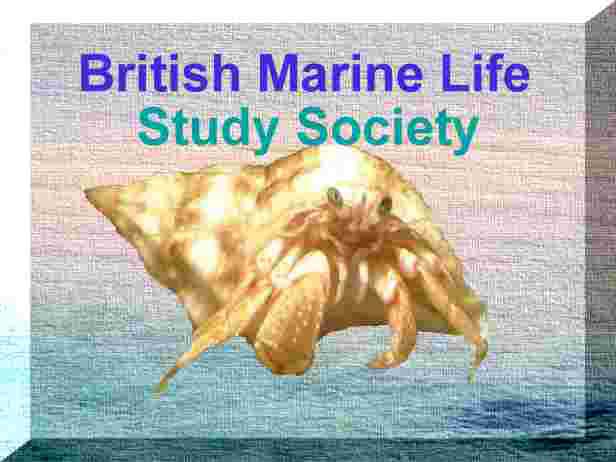 |
| Homepage (Address) |
| Index |
| News |
| Main Links |
|
|
|
FORUM PAGE |
 |
 |
|
CONTENTS Diary
|
| DIARY
|
If you receive this Bulletin direct from the British Marine Life Study Society it will contain only *.htm *.gif & *.jpg files.
Recipients
can only unsubscribe if the Bulletin is received directly from the
BMLSS.
Permission
is granted to forward the Bulletin on unaltered. However, you will have
to include the images separately.
To
save download times, only new images are included with each Bulletin.
The
Bulletin is designed to be viewed on Internet Explorer or Netscape using
medium fonts
at
a resolution of 800 x 600.
The Glaucus 2001 CD-ROM will be an improved version of the 2000 issue. This will not be available until later this year. Members joining with the Premier Membership (including the CD-ROM) have the option of receiving the current Glaucus 2000 CD-ROM or to wait for the new version.The CD-ROM contains the complete British Marine Life Study Society web pages including hundreds of photographs plus tide tables and other information. The information on the Glaucus 2000 CD-ROM is suitable for PC computers only and will not work properly on Apple-Macs.
British Marine Life Study Society
MEMBERSHIP FORM
Reports of marine wildlife from all around the British Isles, with pollution incidents and conservation initiatives as they affect the flora and fauna of the NE Atlantic Ocean.
|
The British Marine Life Study Society web pages are available for permanent reference on the CD-ROM.
The Homepage can now be accessed by typing in:
http://www.glaucus.co.ukSub-directories cannot be accessed directly through this domain.
This URL access was faulty during the last month, but it has now been restored.Please send any reports of missing links and images to: Glaucus@hotmail.com
In
chronological order, the most recent events are at the top of the page.
Events open to the public, free or for a nominal charge only are included.
Most Seminars need to be booked in advance
2001
MARINE LIFE COURSESMarine Biology Course for Adults: Distance Education and Field course
Starts January 2002.
Details at
http://www.gla.ac.uk/adulteducation/brochure/credit/7NF7.html
7NF7 MARINE BIOLOGY
20 credits at Level 1
Starting January 2002
10 week Internet based course followed by 1 week residential field courseThe overall aim of this course is to familiarise students with the basic principles that rule life in the ocean and provide an understanding of the variety of marine ecosystems found throughout the world. By examining the physical and chemical conditions organisms experience in different oceanographic regions we will learn how marine organisms are adapted to the intertidal zone, the open ocean, the deep sea, coral reefs and polar seas. The course will be taught by providing lecture material on the world-wide web (WWW). This material will be supported by web-based asynchronous conferencing. A one week residential field course in Scotland will then be held to put theory into practice. Students are required to have access to the WWW and have email* and must attend field course.* All students are given free access to on-campus computing facilities. **Includes accommodation fee for field course.
Tutors: Anuschka Miller, BSc, MSc, PhD and Dominic McCafferty, BSc, PhD
Fee £350**
-----------------------------------------------------
Dr Dominic J. McCafferty
Department of Adult and Continuing Education
University of Glasgow,
St Andrew's Building,
1 Park Drive Glasgow G3 6LP
Scotland
email: d.mccafferty@educ.gla.ac.ukTel: 0141 330 4394 Direct Line: 0141 330 2631
Fax: 0141 330 3525People on benefits may be eligible to have their fees waived completely.
Click here on how to book your place
For further details contact enquiries or visit the DACE website

S180 Life In The Oceans: Exploring Our Blue Planet
http://www.open.ac.uk/science/short
http://www3.open.ac.uk/courses/bin/p12.dll?C02S180
Code : S180 Level : 1 Points : 10
Start date End date UK fee*
Feb 2002 see description £65 no online registration -
Computer required No residential school
*Note: this course is only available in the United Kingdom.
Description
This new course is linked to the spectacular 'Blue Planet' BBC TV series.
It will use a variety of media to address the following questions:
• What are the challenges of living in the oceanic environment, and how have marine organisms adapted to cope with them?
• Why do some parts of the ocean continually teem with life while others have seasonal bursts of activity?
• How do marine ecosystems differ from terrestrial ecosystems?
• How have our ideas about the deep ocean environment evolved?And why do discoveries in the abyssal depths continue to amaze us?
In working towards answers to these questions, you will see that to understand life in the oceans we need to consider not just marine biology, but geology, chemistry and physics - the shape of the ocean basins, the chemistry of seawater, and ocean tides and currents, all play crucial roles in shaping the marine environment. The final section of the course looks at modern fishing techniques and their far-reaching consequences for marine life, and considers what might be done to ameliorate the present critical situation.The course has been written assuming that you are new to science, and introduces new scientific ideas as you need them. However, if you have already done some science at school, college or elsewhere, you will find opportunities to explore some topics further. The course should help you to develop a variety of skills, which become more sophisticated as the course progresses, and there are questions to help you check your understanding as you go along.
BIOSIS Conference Calendar for Zoology
(Major Link of all biological conferences around the world)

Southampton Oceanography Centre2001
1st March Galapagos oil spill Ken Collins 5th April Cold, deep coral reefs Alex Rogers 3rd May Dolphins on our doorstep Andy Williams & Jenny Mallinson 7th June Wrasse watching Ken Collins 5th July Salmon migration Adrian Fewings 2nd August Honduras reefs Lisa Browning 6th September Swanage maerl Ken Collins 4th October Deep sea cucumbers Ben Wigham 1st November Solent, past and present Jack Coughlan 6th December Aliens of inner space Peter Herring
For more information, contact:
Tel: 023 80 596299
Map to Southampton Oceanography Centre
Best wishes
Dr Ken Collins
Senior Research Fellow
School of Ocean and Earth Science
University of Southampton
Southampton Oceanography Centre
European Way
Southampton SO14 3ZH.
U.K.
Email: kjc@soc.soton.ac.uk
http://www.soc.soton.ac.uk/SOES/RES/groups/reef
Devon Wildlife TrustWembury Bay Rockpool Rambles
Contact Wembury Marine Centre Tel: 01752 862538Leaflet from Devon Wildlife Trust Tel: 01392 279244.
Diary Page (Link)
CETACEANS
Bottle-nosed
Dolphin, Tursiops truncatus
Photograph
by Nicolas Jouault

http://www.seawatchfoundation.org.uk/
The Sea Watch Foundation is the only charity in Britain dedicated to monitoring the status and distribution of cetaceans in British and Irish waters in order to obtain information vital to their future survival.
An extensive programme of specialised survey work is enhanced by a unique sightings network of volunteer observers throughout the UK which provides data essential not only for basic research, but also for evidence crucial in the conservation and protection of these marine animals.
The work leading to the formation of the Sea Watch Foundation began back in 1973 with zoologist Dr Peter Evans. Realising just how little was known about cetaceans in British and Irish waters, Dr Evans developed a network of volunteer observers - the Cetacean Group - with backing from the Mammal Society.
Company of Whales
Irish Whale & Dolphin Group web pages
The Whale watching information was included in previous issues of Torpedo, but the bulletin has now been streamlined to avoid repetition.
|
Top of the Page
Under Sea Wind
MAN'S IMPACT ON THE MARINE ENVIRONMENT
UK Environment and Planning
Under Sea Wind (BMLSS)
World Wide Fund for Nature (Global Toxics)
Official Marine Nature Conservation Review (JNCC) Report Forms
http://www.jncc.gov.uk/marine/mainfs.asp?page=/mit/recfrm.htm

MARINE WILDLIFE of the NORTH-EAST ATLANTIC OCEAN EFORUM PAGE (LINK TO)
Discussions on the Forum |

WET THUMB (Marine Aquariology) EFORUM PAGE |
JOIN
THE DISCUSSION GROUP ABOUT MARINE FISHKEEPING
CLICK
ON THE LINK IN THE ABOVE BOX AND JOIN
All
photographs on the web site are copyright protected
Other
Smart Groups (selected)
Sea
Slug Forum
http://www.seaslugforum.net/
Photographic Guide to the
Sea & Shore Life
of Britain & North-west Europe
(Oxford University Press 2001)
ISBN
Pbk 0 19 850709 7
Hbk 0 19 850041 6WARNING: This book contains a few mistakes where the photographs do not match the text.
NEW BOOKCreatures of the Deep
by Erich Hoyt
Firefly Books 2001
ISBN 1-55209-340-9
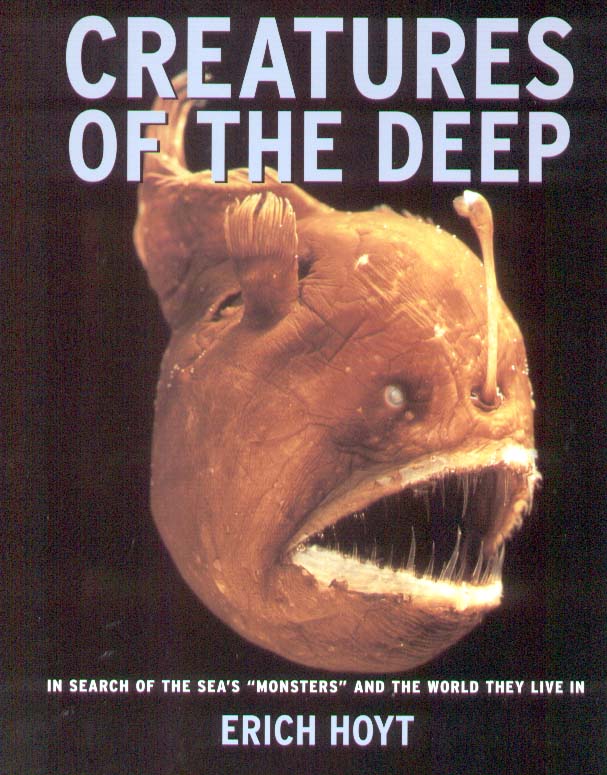
ISBN 1-55209-340-9
BMLSS: Marine Life Articles in Publications (Link)
|
(British Isles) Reports of marine wildlife from all around the British Isles, with pollution incidents and conservation initiatives as they affect the fauna and flora of the NE Atlantic Ocean. |
|
|
eForum |
|
|
 |
|
Vraic appears to be a dialectic variation of wrack, a common name for seaweed Even general views have value, but ideally we would like photographs of the shore showing the type of rock, topography and rock pools, dominant fauna, and information that cannot be described adequately by words on the Report Cards.
The name of the particular coast should be included and the grid reference, if known. Print photographs can be included in Exhibitions and on the BMLSS Web Sites and electronic publications. Electronic images in *.JPG format can also be considered for the web site. They should not exceed 100K in size. |
The British Marine Life Study Society Web Site has been included as an Encyclopaedia Britannica Recommended Site and included on the BBC On-line Internet Guide.
There
are more entries on the GATEWAY pages of the BMLSS
Web Site and on the Torpedo File on the
web site (click on this text).
|
|
MARINE LIFE ORGANISATIONS |
|
(Cornwall Wildlife Trust web pages) |
 |
|
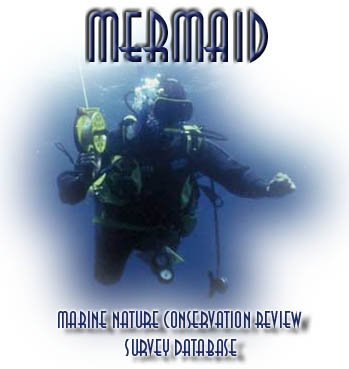 |
(MERMAID) |
 |
'Strandwerkgroep' (Beachworkgroup) |
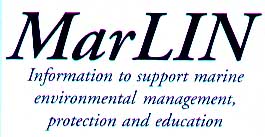 |
(Marine Life Information Network) |
|
|
National Biodiversity Network (Search) |
 |
|
 |
(Ocean Services Section IOC) |
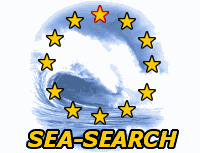 |
SEA-SEARCH is a European co-operative of 16 national oceanographic data centres and marine information services from 14 European countries, including the EC-Joint Research Centre. |

UK Environment and Planning EFORUM PAGE |
SPONSORS ARE INVITED FOR THE BMLSS WEB SITE FOR 2001
| BMLSS (England) HOMEPAGE |
| News 1999 | News 1998 | News 1997 | News 1996 |
| BMLSS (Facebook) |
|
|
|
|
|
|
| Printing
the two column version of Torpedo (from issue 28)
These
pages are not designed for the default settings on the Page Set-ups of
your browser. I recommend viewing in Internet Explorer 5 and altering the
right and left hand columns in the Page Set-up menu to 9 mm (from 19 mm).
|
FULL MEMBERS 1999/2001
|
The 2000 issue of Glaucus with 48 information filled pages has been sent out to members. Renewals: Renewals 2001 New
Members
The
new Premier Membership for the year 2000 also entitles the member to the
Official BMLSS CD-ROM, which will contain the BMLSS web pages and
more information about marine life, together with a selection of other
exclusive marine life information, electronic back copies of BMLSS publications,
and the full version of TORPEDO
Electronic News Bulletin sent to them every month by Email, as well as
the other BMLSS Electronic Information Services. The CD-ROM
will also contain useful shareware and freeware programs, and should be
at least as good value as a computer magazine CD-ROM for the second aspect
alone.
The
work of the BMLSS is funded by entirely by member's subscriptions and we
do not receive any grants.
|
| FIVE KINGDOMS
TAXONOMIC INDEX TO BRITISH MARINE WILDLIFE
Use these links if your are familiar with the scientific classifications of marine life |
Compiled on Netscape Composer 4.6

